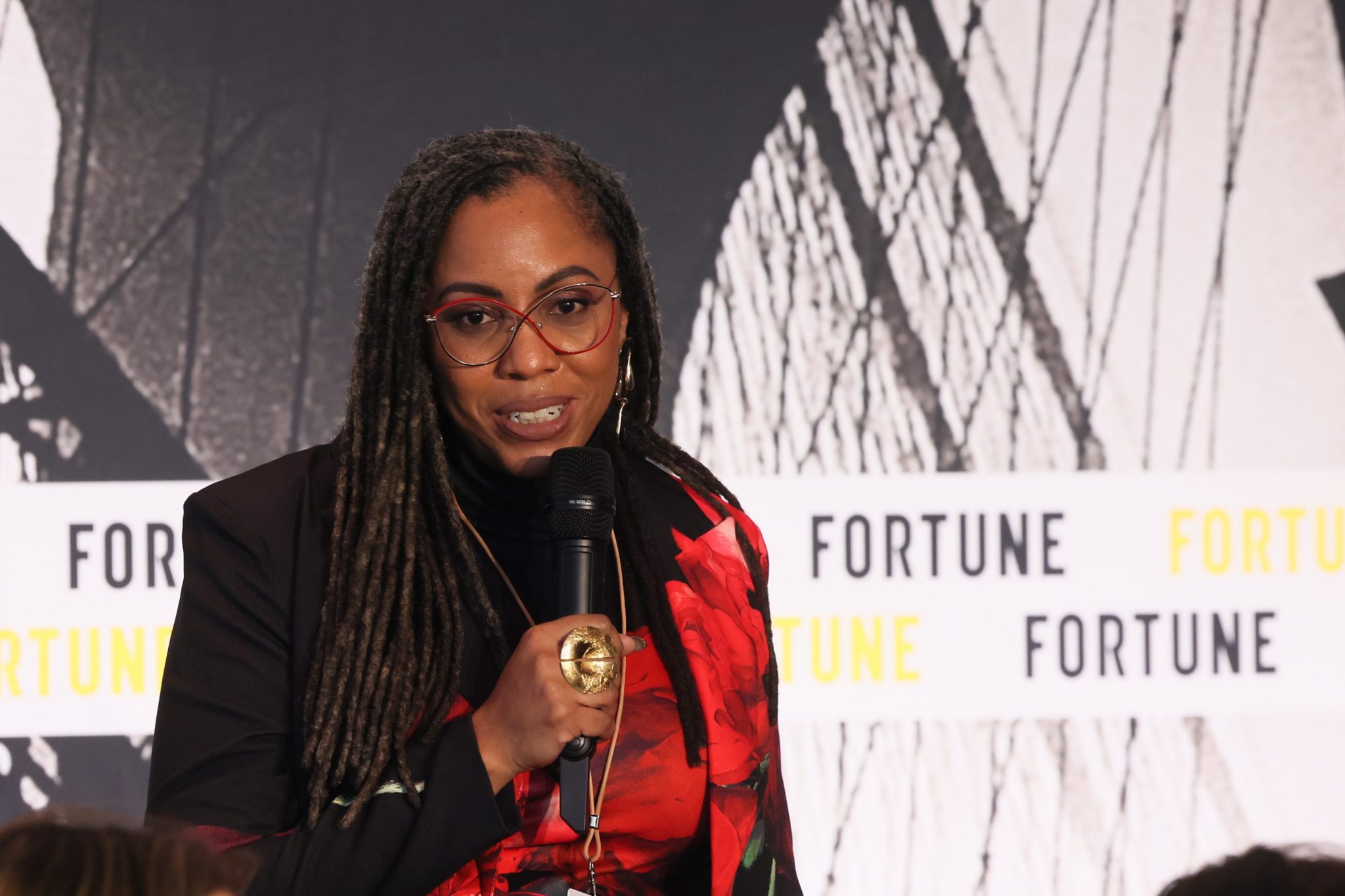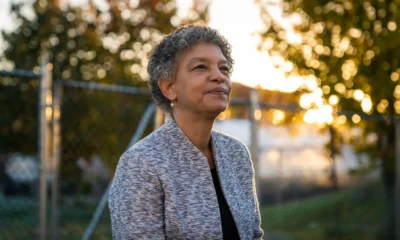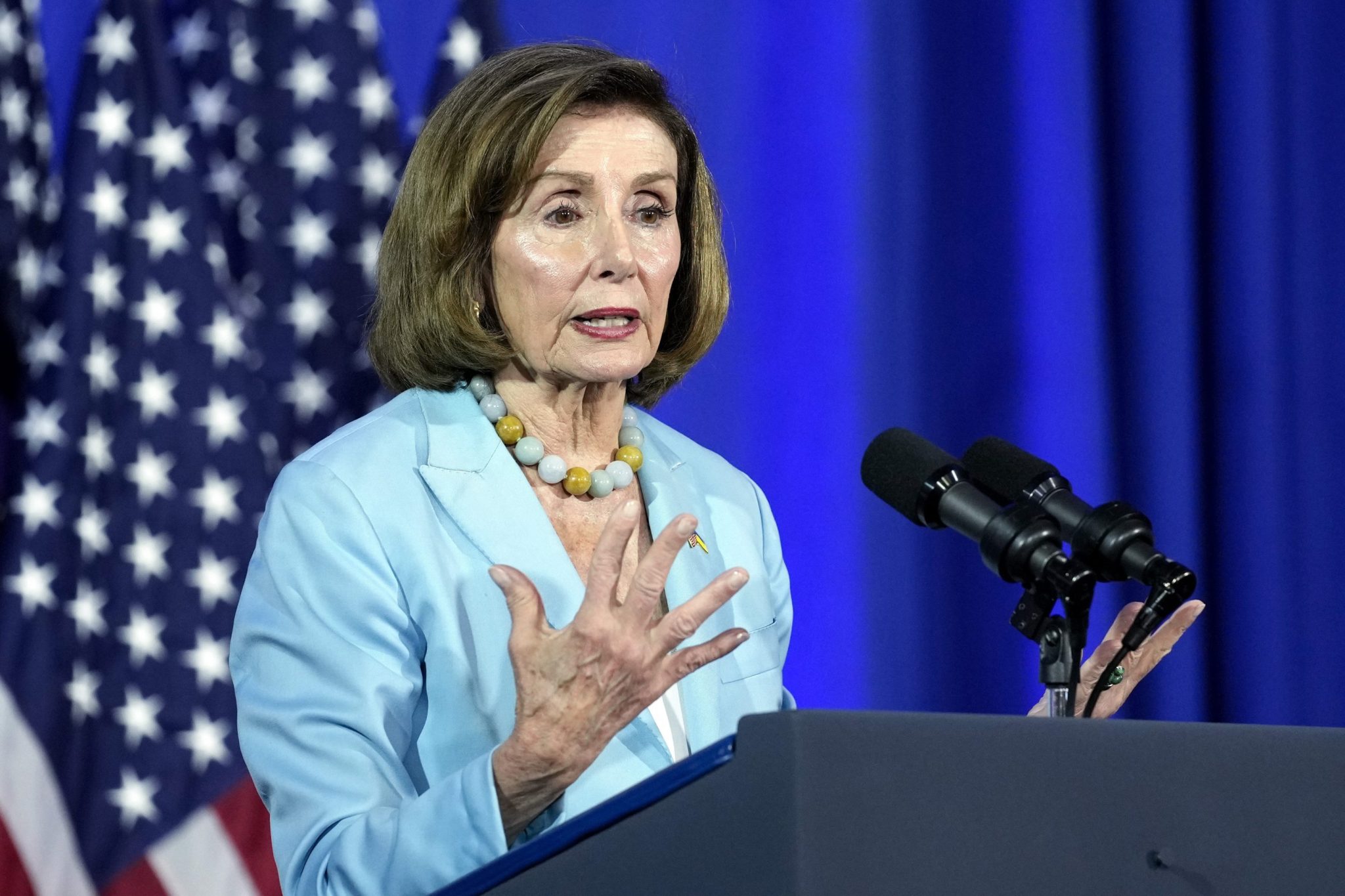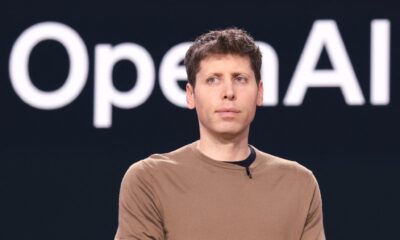Tech News
Norway’s sovereign wealth fund is buying a slice of Covent Garden for $739 million amid retail boom for the former fruit and veg market

The world’s largest sovereign wealth fund—Norway’s Norges Bank Investment Management (NBIM)—is buying a 25% stake in London’s buzzy Covent Garden worth £570 million ($739 million).
NBIM, which has nearly $2 trillion worth of assets under management and holds 1.5% of all listed companies in the world, is partnering with Shaftesbury Capital, the area’s landlord, for the deal.
The Covent Garden estate is now worth £2.7 billion ($3.5 billion), Shaftesbury said in a press release Thursday. Retail and food and beverage establishments use most of the land, while office and residential buildings occupy a quarter.
The area, which includes Seven Dials and Neal’s Yard, is already a popular tourist destination and boasts stores of most major brands, from Tissot and Ladurée to Apple and Chanel.
NBIM’s investment comes amid a slew of new retail establishments opening up in Covent Garden, including brands like perfumery Diptyque, activewear brand Alo Yoga, and cosmetics store Charlotte Tilbury.
Covent Garden is one of London’s prominent cultural hubs. When the city was decimated by fire in 1666, the area rose to the occasion, becoming London’s largest market selling fruit and vegetables.
Today, it’s home to the city’s West End and Opera shows and flaunts a Piazza with scores of food and retail joints sprinkled around.
The area suffered from the loss of foot traffic during the COVID-19 pandemic, losing about a quarter of its value at the time from £2.5 billion to £1.8 billion. As activity began picking up, Shaftesbury continued to bolster its portfolio in Covent Garden’s prime property market. Luxury property demand in Covent Garden reached “record-breaking” levels last year, real estate firm UK Sotheby’s International Realty found.
“This investment underscores our belief in the strength of London with the portfolio complementing our other high quality West End investments,” said Jayesh Patel, head of UK real estate at NBIM. “Covent Garden is one of the world’s most recognized retail, leisure and cultural destinations.”
The vibrant shopping district isn’t the only one that has recently grabbed NBIM’s attention. In January, the Norwegian fund bought a quarter of the Grosvenor property portfolio in London’s upscale Mayfair neighborhood. The deal was worth £307.5 million and includes a mix of office and retail buildings.
NBIM also owns a portion of Regent Street through a partnership with the Crown Estate.
Companies are trying to take advantage of low prices in prime real estate, including high-end retail, following the whiplash from high interest rates.
NBIM, led by CEO Nicolai Tangen, has become an avid investor over the years. Most of its funds are invested in equity, including roughly $173 billion in Magnificent Seven stocks. Only 7% of its investments are in real estate.
Following the deal’s announcement, Shaftesbury’s shares were up 7.5% at 11.30 a.m. London time.
Representatives at NBIM and Shaftesbury didn’t immediately return Fortune’s requests for comment.
This story was originally featured on Fortune.com
Tech News
Meet LaFawn Davis: A C-suite executive at Indeed who dropped out of college and proved you don’t need a degree to land a top job

When LaFawn Davis was growing up, she didn’t dream of becoming an astronaut, a doctor, or a teacher…she dreamed of becoming the CEO of seven companies, at once.
This ambition inspired a strong work ethic, one that propelled Davis into the workforce at 14, when she took her first job at a Black-owned flower shop in her hometown of San Jose, California. And once she started working, she never stopped.
Despite her strong work ethic, Davis—who landed her current job as Indeed’s chief people and sustainability officer in May 2024—told HR Brew that her career hasn’t always been smooth, in part because she didn’t have a bachelor’s degree.
“I was told that because I didn’t have a college degree, there were certain roles I couldn’t go for. I was a believer that, regardless of what the job description says, if I felt like I could do it, I would go for it anyway,” Davis told HR Brew.
But she isn’t the only HR pro without a bachelor’s degree. Just 31% of people pros in the US have achieved that level of education, according to an HR Brew/Harris Poll survey conducted in September. Some 12% have an associate’s degree, while 30% have a high school diploma and 8% have less. Meanwhile, 18% have a graduate degree.
Davis shared with HR Brew how she climbed the corporate ladder without a four-year college degree.
Career journey. After graduating high school, Davis enrolled at San José State University. But she said she found herself skipping classes to go to work and decided to drop out and join corporate America. She worked in operational roles at startups during the dotcom era, but when that bubble burst in 2000, she lost her job. And without a bachelor’s degree, Davis said she was turned away from new opportunities.
So at 22, with a newborn to care for, she made the difficult decision to move home with her parents. But she was still determined to rejoin the corporate workforce and fulfill her childhood dream of becoming an executive.
During those post-dotcom years, Davis said she leaned heavily on her network of corporate contacts, who helped her find work as a claims adjustor, executive assistant, and chief of staff. Each role taught her a new admin or people skill. Then, in 2005, she got her big break—she was hired as a program specialist at Google, where she would work for eight years, ending her tenure as its HR business partner for diversity and inclusion.
“I really focus[ed] on a lot of HR programs and initiatives and how diversity, equity, inclusion can be woven throughout the whole process of the employee life cycle,” she said. “I really loved it, and I thought I found what my career path was going to be, as opposed to a job. I felt like I was actually embarking upon a career.”
After Google, Davis said she played a game of “tech company roulette,” moving between employee experience and DEI roles at firms including Yahoo!, eBay, and Paypal. In 2019, nearly 15 years into her HR career, she landed at Indeed as a VP of diversity, inclusion, and belonging.
Skills-first is the future. Davis said she was lucky to have had so many opportunities to break into corporate America without a bachelor’s degree, and wishes the skills-based hiring her employers practiced were more common.
“The skills-first movement is not anti-college degree at all…It is more that a college degree is just not the only route to gaining skills, and helping both people and companies understand what it means to hire for skills,” she said.
Davis said she used to be “ashamed” that she didn’t have a four-year college degree. Nowadays, she enjoys sharing her story, and uses it to inform her work at Indeed, where she strives to make the application process easier for candidates by encouraging companies to adopt a skills-first approach.
“One of the things that I said when I came into Indeed was, ‘We need to drink our own champagne…Whatever we’re going to ask other companies to do, we need to do it ourselves,” she said, adding that Indeed dropped college-degree requirements from its corporate job postings in 2022, and calls itself a fair chance employer.
“I won’t be the CEO of seven consecutive companies at the same time,” she said, but “becoming part of the C-suite, knowing along the journey that I don’t have a college degree, has been a great space of inspiration for others to know they could do the same.”
This report was written by Mikaela Cohen and was originally published by HR Brew.
This story was originally featured on Fortune.com
Tech News
Meet LaFawn Davis: A C-suite executive at Indeed who dropped out of college and proved you don’t need a degree to land a top job

When LaFawn Davis was growing up, she didn’t dream of becoming an astronaut, a doctor, or a teacher…she dreamed of becoming the CEO of seven companies, at once.
This ambition inspired a strong work ethic, one that propelled Davis into the workforce at 14, when she took her first job at a Black-owned flower shop in her hometown of San Jose, California. And once she started working, she never stopped.
Despite her strong work ethic, Davis—who landed her current job as Indeed’s chief people and sustainability officer in May 2024—told HR Brew that her career hasn’t always been smooth, in part because she didn’t have a bachelor’s degree.
“I was told that because I didn’t have a college degree, there were certain roles I couldn’t go for. I was a believer that, regardless of what the job description says, if I felt like I could do it, I would go for it anyway,” Davis told HR Brew.
But she isn’t the only HR pro without a bachelor’s degree. Just 31% of people pros in the US have achieved that level of education, according to an HR Brew/Harris Poll survey conducted in September. Some 12% have an associate’s degree, while 30% have a high school diploma and 8% have less. Meanwhile, 18% have a graduate degree.
Davis shared with HR Brew how she climbed the corporate ladder without a four-year college degree.
Career journey. After graduating high school, Davis enrolled at San José State University. But she said she found herself skipping classes to go to work and decided to drop out and join corporate America. She worked in operational roles at startups during the dotcom era, but when that bubble burst in 2000, she lost her job. And without a bachelor’s degree, Davis said she was turned away from new opportunities.
So at 22, with a newborn to care for, she made the difficult decision to move home with her parents. But she was still determined to rejoin the corporate workforce and fulfill her childhood dream of becoming an executive.
During those post-dotcom years, Davis said she leaned heavily on her network of corporate contacts, who helped her find work as a claims adjustor, executive assistant, and chief of staff. Each role taught her a new admin or people skill. Then, in 2005, she got her big break—she was hired as a program specialist at Google, where she would work for eight years, ending her tenure as its HR business partner for diversity and inclusion.
“I really focus[ed] on a lot of HR programs and initiatives and how diversity, equity, inclusion can be woven throughout the whole process of the employee life cycle,” she said. “I really loved it, and I thought I found what my career path was going to be, as opposed to a job. I felt like I was actually embarking upon a career.”
After Google, Davis said she played a game of “tech company roulette,” moving between employee experience and DEI roles at firms including Yahoo!, eBay, and Paypal. In 2019, nearly 15 years into her HR career, she landed at Indeed as a VP of diversity, inclusion, and belonging.
Skills-first is the future. Davis said she was lucky to have had so many opportunities to break into corporate America without a bachelor’s degree, and wishes the skills-based hiring her employers practiced were more common.
“The skills-first movement is not anti-college degree at all…It is more that a college degree is just not the only route to gaining skills, and helping both people and companies understand what it means to hire for skills,” she said.
Davis said she used to be “ashamed” that she didn’t have a four-year college degree. Nowadays, she enjoys sharing her story, and uses it to inform her work at Indeed, where she strives to make the application process easier for candidates by encouraging companies to adopt a skills-first approach.
“One of the things that I said when I came into Indeed was, ‘We need to drink our own champagne…Whatever we’re going to ask other companies to do, we need to do it ourselves,” she said, adding that Indeed dropped college-degree requirements from its corporate job postings in 2022, and calls itself a fair chance employer.
“I won’t be the CEO of seven consecutive companies at the same time,” she said, but “becoming part of the C-suite, knowing along the journey that I don’t have a college degree, has been a great space of inspiration for others to know they could do the same.”
This report was written by Mikaela Cohen and was originally published by HR Brew.
This story was originally featured on Fortune.com
Tech News
Meet LaFawn Davis: A C-suite executive at Indeed who dropped out of college and proved you don’t need a degree to land a top job

When LaFawn Davis was growing up, she didn’t dream of becoming an astronaut, a doctor, or a teacher…she dreamed of becoming the CEO of seven companies, at once.
This ambition inspired a strong work ethic, one that propelled Davis into the workforce at 14, when she took her first job at a Black-owned flower shop in her hometown of San Jose, California. And once she started working, she never stopped.
Despite her strong work ethic, Davis—who landed her current job as Indeed’s chief people and sustainability officer in May 2024—told HR Brew that her career hasn’t always been smooth, in part because she didn’t have a bachelor’s degree.
“I was told that because I didn’t have a college degree, there were certain roles I couldn’t go for. I was a believer that, regardless of what the job description says, if I felt like I could do it, I would go for it anyway,” Davis told HR Brew.
But she isn’t the only HR pro without a bachelor’s degree. Just 31% of people pros in the US have achieved that level of education, according to an HR Brew/Harris Poll survey conducted in September. Some 12% have an associate’s degree, while 30% have a high school diploma and 8% have less. Meanwhile, 18% have a graduate degree.
Davis shared with HR Brew how she climbed the corporate ladder without a four-year college degree.
Career journey. After graduating high school, Davis enrolled at San José State University. But she said she found herself skipping classes to go to work and decided to drop out and join corporate America. She worked in operational roles at startups during the dotcom era, but when that bubble burst in 2000, she lost her job. And without a bachelor’s degree, Davis said she was turned away from new opportunities.
So at 22, with a newborn to care for, she made the difficult decision to move home with her parents. But she was still determined to rejoin the corporate workforce and fulfill her childhood dream of becoming an executive.
During those post-dotcom years, Davis said she leaned heavily on her network of corporate contacts, who helped her find work as a claims adjustor, executive assistant, and chief of staff. Each role taught her a new admin or people skill. Then, in 2005, she got her big break—she was hired as a program specialist at Google, where she would work for eight years, ending her tenure as its HR business partner for diversity and inclusion.
“I really focus[ed] on a lot of HR programs and initiatives and how diversity, equity, inclusion can be woven throughout the whole process of the employee life cycle,” she said. “I really loved it, and I thought I found what my career path was going to be, as opposed to a job. I felt like I was actually embarking upon a career.”
After Google, Davis said she played a game of “tech company roulette,” moving between employee experience and DEI roles at firms including Yahoo!, eBay, and Paypal. In 2019, nearly 15 years into her HR career, she landed at Indeed as a VP of diversity, inclusion, and belonging.
Skills-first is the future. Davis said she was lucky to have had so many opportunities to break into corporate America without a bachelor’s degree, and wishes the skills-based hiring her employers practiced were more common.
“The skills-first movement is not anti-college degree at all…It is more that a college degree is just not the only route to gaining skills, and helping both people and companies understand what it means to hire for skills,” she said.
Davis said she used to be “ashamed” that she didn’t have a four-year college degree. Nowadays, she enjoys sharing her story, and uses it to inform her work at Indeed, where she strives to make the application process easier for candidates by encouraging companies to adopt a skills-first approach.
“One of the things that I said when I came into Indeed was, ‘We need to drink our own champagne…Whatever we’re going to ask other companies to do, we need to do it ourselves,” she said, adding that Indeed dropped college-degree requirements from its corporate job postings in 2022, and calls itself a fair chance employer.
“I won’t be the CEO of seven consecutive companies at the same time,” she said, but “becoming part of the C-suite, knowing along the journey that I don’t have a college degree, has been a great space of inspiration for others to know they could do the same.”
This report was written by Mikaela Cohen and was originally published by HR Brew.
This story was originally featured on Fortune.com
-

 Tech News3 months ago
Tech News3 months agoHow Costco’s formula for reaching uncertain consumers is pushing shares past $1,000 to all-time highs
-

 Tech News3 months ago
Tech News3 months agoLuigi Mangione hires top lawyer—whose husband is representing Sean ‘Diddy’ Combs
-

 Tech News3 months ago
Tech News3 months agoLego bricks have won over adults, growing its $10 billion toy market foothold—and there’s more to come
-
Tech News3 months ago
Quentin Tarantino thinks movies are still better than TV shows like Yellowstone
-

 Tech News3 months ago
Tech News3 months agoInside the FOMC: Boston Fed President Susan Collins on changing her mind, teamwork, and the alchemy behind the base rate
-

 Tech News3 months ago
Tech News3 months agoNancy Pelosi has hip replacement surgery at a US military hospital in Germany after falling at Battle of the Bulge ceremony
-

 Tech News3 months ago
Tech News3 months agoTrump and members of Congress want drones shot down while more are spotted near military facilities
-

 Tech News3 months ago
Tech News3 months agoHundreds of OpenAI’s current and ex-employees are about to get a huge payday by cashing out up to $10 million each in a private stock sale

